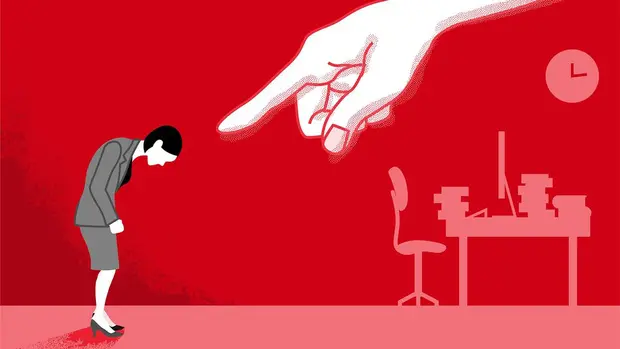By APD writer Alice
Japan and South Korea have seen increasing suicide rates, especially among young women, and many believe the situation is related to Covid-19.
The total number of suicides in Japan in October was 2,153, the highest monthly figure in more than five years. This number increased even more in women.
From July to October, at least 2,810 Japanese women committed suicide, 41% higher than the same period last year. Preliminary data by age group shows the strongest increase in the number of suicides among those under 29 years old.
South Korea has a higher rate of suicides than Japan, with deaths from suicide peaking at nearly 16,000 in 2011. The number of suicides this year has generally declined, but the number of women over the age of 20 self-seeking death in the first half of the year jumped 43% compared to the same period last year.
Japan and South Korea are two of the few countries that have published up-to-date data on the number of suicides. Experts are concerned that the emerging trend in these two countries could be an early warning signal for the rest of the world, when the Covid-19 pandemic and lockdown orders take a toll on mental health.
There are currently no global studies to help answer the question of whether the pandemic will cause the number of suicides to increase or how it may affect different age groups and genders.
In Japan, many youths and young women have recently contacted suicide prevention hotlines and called for help on Twitter and a series of other online forums.
According to staff of the Japanese Association of Mental Health Services, the chance of a caller’s getting connected to its hotlines are only about 40%, even though the association has added counselors. This shows that the need for counseling is increasing rapidly.
Jiro Ito, head of the OVA, a non-profit that specializes in preventing suicides, said people who call their helpline often have common feeling: loneliness.
"During a pandemic, we have fewer opportunities to communicate with people around us. If you have a family, you can spend more time with them. If your relationship with your family is good, you will feel happy. But if your relations with your family members are not good, that will only increase feelings of stress and loneliness.
According to Michiko Ueda, professor of Japan’s Waseda University, who studies suicidology and suicide prevention, the cause of the rise in female suicides this year is not yet clear, but economic factors may play a role.
The travel, retail, food and restaurant industries are particularly heavily affected by Covid-19, she said, adding that these industries tend to employ women, mainly in contract positions. A lot of women have lost their jobs and had incomes drop significantly.
Schools across the country shut down when Japan declared a state of emergency in April and May. On the other hand, most people had to work remotely during the period.
But there is a paradox that the number of suicides fell dramatically during the time Japan imposed a national emergency. "In times of crisis, people tend to worry more about their own lives, so they don't think about suicide," Ueda explained.
When summer came and people returned to their "new normal" life, the stress began to come back.
Bond Project, a non-profit organization dedicated to helping young women, in June conducted a poll of more than 1,000 people who had been helped in the past. About three-quarters of these said they felt unmotivated and wanted to "disappear and die". Others say they feel lonely and cannot sleep.
In South Korea, suicides in the capital of Seoul have increased by 4.8 percent in the first half of the year, also led by young women.
The country’s Health Ministry said the number of people admitted to emergency rooms for attempted suicide nationally rose 10 percent in the first eight months of the year, with women in their 20s accounting for a third.
Joo Ji-young, deputy head of the Seoul Suicide Prevention Center, blamed the situation for the side effect of social distancing, which widened ‘psychological distance’ between people.
A lack of human connection is a threat to everyone’s mental health, but women are often faced with extra burdens of greater job insecurity compared to men, and of caring for school-aged children at home, he said.
(ASIA PACIFIC DAILY)
 简体中文
简体中文








